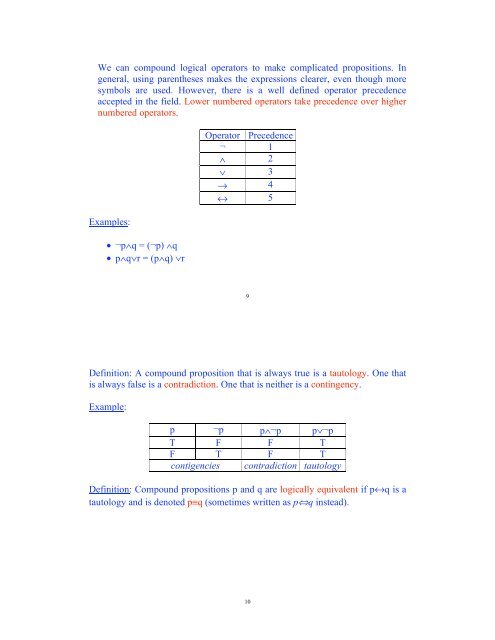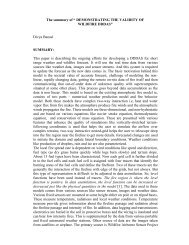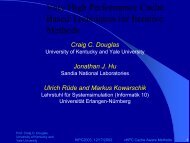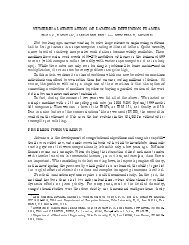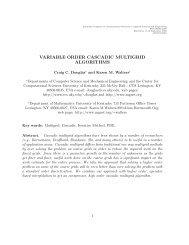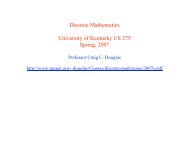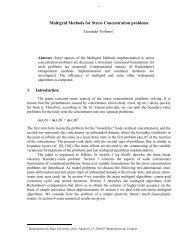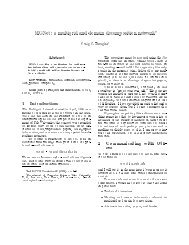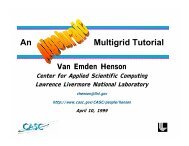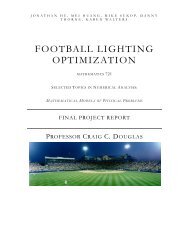Discrete Mathematics University of Kentucky CS 275 Spring ... - MGNet
Discrete Mathematics University of Kentucky CS 275 Spring ... - MGNet
Discrete Mathematics University of Kentucky CS 275 Spring ... - MGNet
Create successful ePaper yourself
Turn your PDF publications into a flip-book with our unique Google optimized e-Paper software.
We can compound logical operators to make complicated propositions. In<br />
general, using parentheses makes the expressions clearer, even though more<br />
symbols are used. However, there is a well defined operator precedence<br />
accepted in the field. Lower numbered operators take precedence over higher<br />
numbered operators.<br />
Examples:<br />
• ¬p!q = (¬p) !q<br />
• p!q"r = (p!q) "r<br />
Operator Precedence<br />
¬ 1<br />
! 2<br />
" 3<br />
% 4<br />
& 5<br />
9<br />
Definition: A compound proposition that is always true is a tautology. One that<br />
is always false is a contradiction. One that is neither is a contingency.<br />
Example:<br />
p ¬p p!¬p p"¬p<br />
T F F T<br />
F T F T<br />
contigencies contradiction tautology<br />
Definition: Compound propositions p and q are logically equivalent if p&q is a<br />
tautology and is denoted p'q (sometimes written as p!q instead).<br />
10


